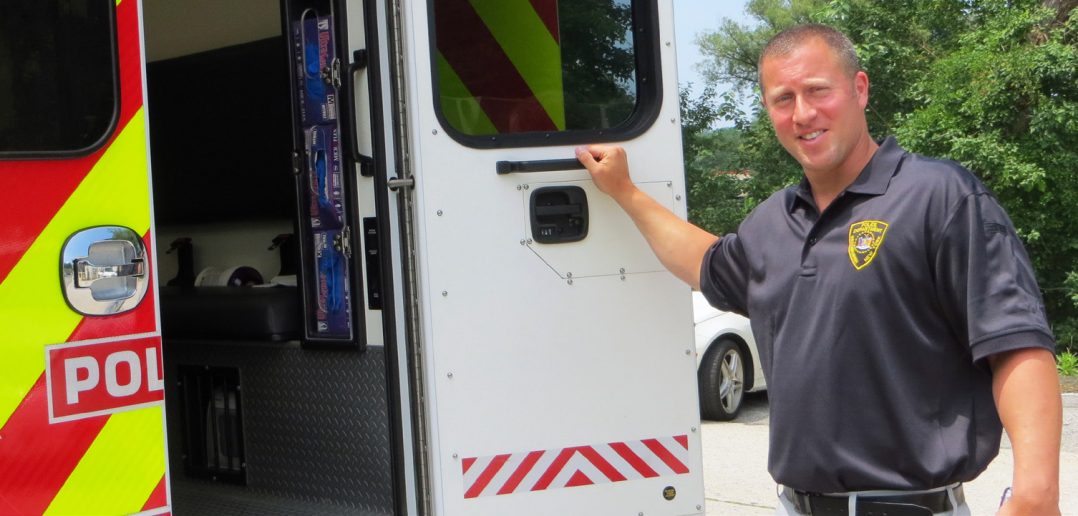GREENBURGH — When the unprecedented COVID-19 pandemic hit communities across New York, even some of our best prepared members are finding response a challenge.
When reports of a coronavirus outbreak in China made their way to the United States, Town of Greenburgh Unit President Jared Rosenberg knew it was time for an inventory check.
Rosenberg, the paramedic supervisor at the Town of Greenburgh in Westchester County, is trained to be ready for a crisis. Overseeing first responders who need to stay safe while treating patients, Rosenberg checked his department’s stock of personal protective equipment and placed orders for items he thought might be needed.
Emergency medical technicians and paramedics in Greenburgh were assigned a personal protection kit, Rosenberg said. That includes N-95 masks, Tyvek suits, gowns, full eye protection and wipes. There are roughly 120 police officers working for the town, who often respond on medical calls as well, so Rosenberg set out getting extra supplies for them.
“Everything we are doing for the people who are going into potential calls is based on the CDC [Centers for Disease Control and Prevention] and Department of Health guidelines,” Rosenberg said. “Even our dispatchers, both police and civilian, were given plenty of information to start fielding the appropriate questions as calls come in. We respond to calls no matter what, but we’re screening because we want to know on arrival if you could have had any possible exposure to coronavirus.”
Thanks to continued training in emergency management and previous concerns about outbreaks for diseases such as Ebola, Rosenberg said members of his department have been fitted for AV- 2000 facepieces sold by 3M Scott.
“These masks are kind of like the Scott air packs you’d see on firefighters when they go into burning buildings,” said Rosenberg. “If needed, we can use them and clean them.”
Rosenberg credited good communication amongst local governments, the county, and the state for keeping emergency responders updated on the latest reports and recommendations.
Ultimately, he said, keeping first responders safe is key in containing this outbreak.
“If one person brings it in and you have to quarantine 14 officers, let’s say, you could lose a serious portion of your police department,” Rosenberg said. “People have been coming up with contingency plans, including mutual aid from other jurisdictions. We’re used to working in this kind of environment, to be ready.”
Despite strong preparation and good planning, the town began facing challenges as COVID-19 raged through Westchester County.
Rosenburg recently told AFSCME in a profile that about 20 percent of the calls his department gets every day are COVID-19 related.
“Our most immediate concern is a shortage of equipment,” Rosenburg said. “We need more personal protective equipment, including N-95 masks. We’ve resorted to collecting masks from the public. So far, over 195 masks and 1,000 surgical masks have been donated by residents. We’re grateful for what we have collected, but this is no way to prepare for an uptick in cases. We need these masks, and we need them now.”
Rosenburg also noted that the town needs more access to testing, not only for residents who are potentially infected but for the first responders who have contact with them. As this edition went to press, he said that of 40 workers who are trained to respond to COVID-19, about six workers have been forced to self-quarantine due to lack to access to tests.
“We cannot afford to have between 10 percent and 15 percent of our workforce unable to report to work for at least two weeks because they do not know if they’ve been exposed,” Rosenburg said. “Everyone I work with is committed to this community. We also live here. We will fight this, but the sacrifice of people on the front lines deserves respect.”
— Jessica Ladlee, with AFSCME



